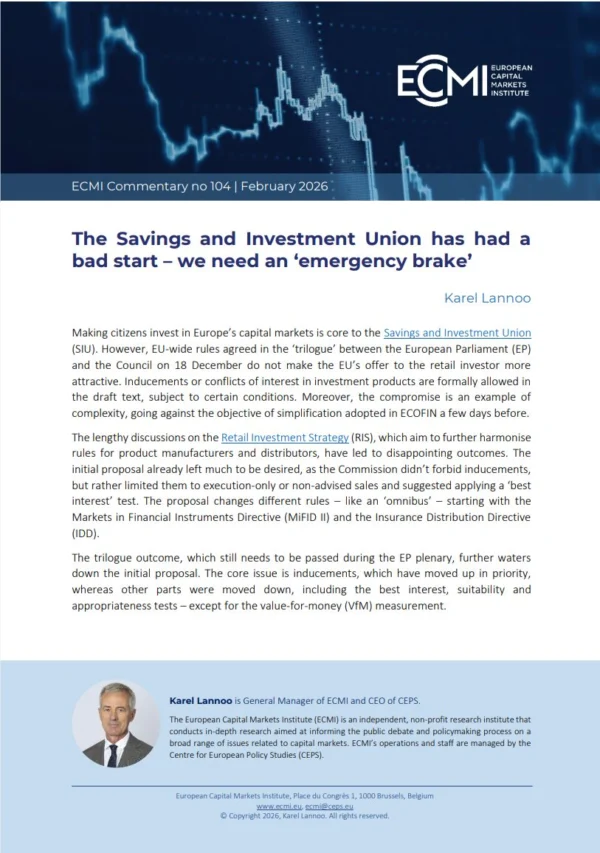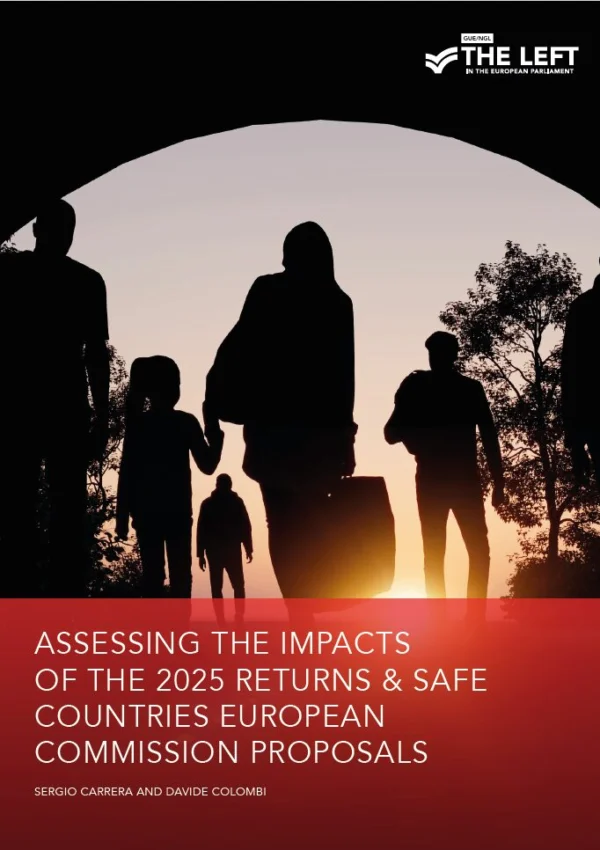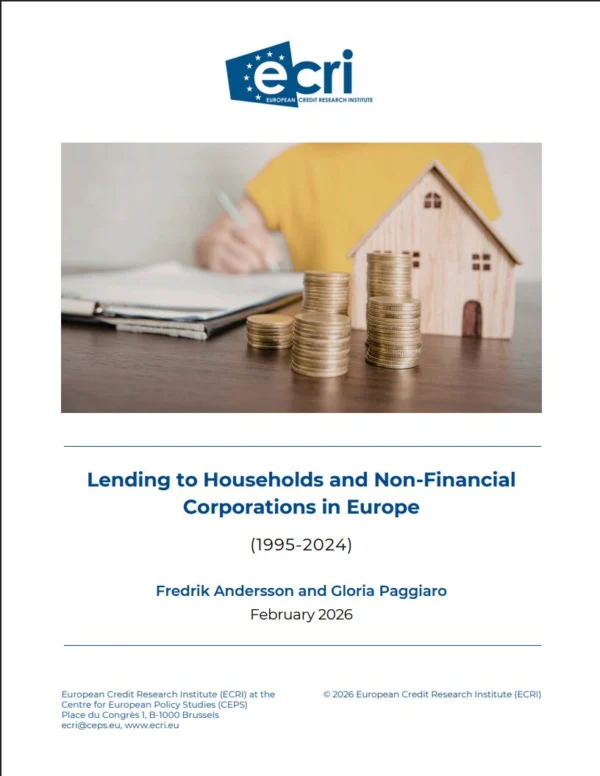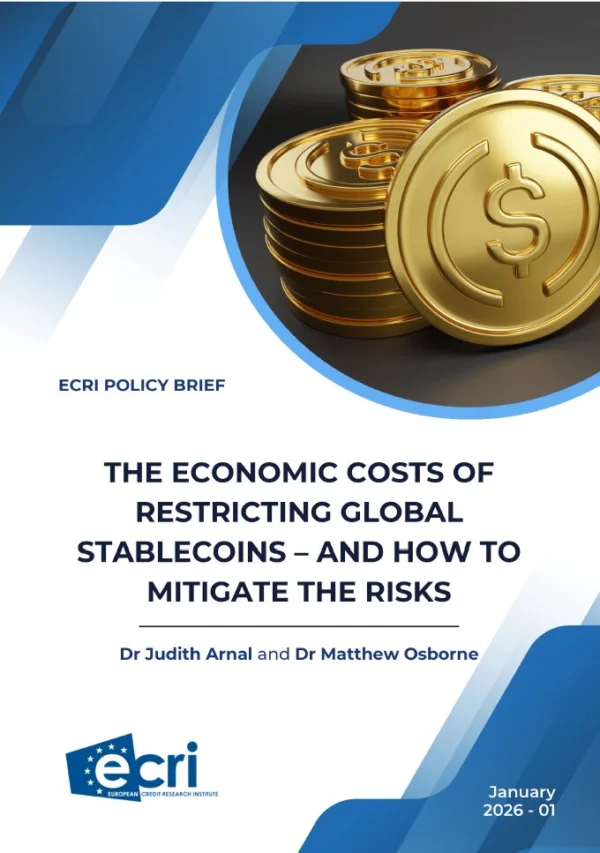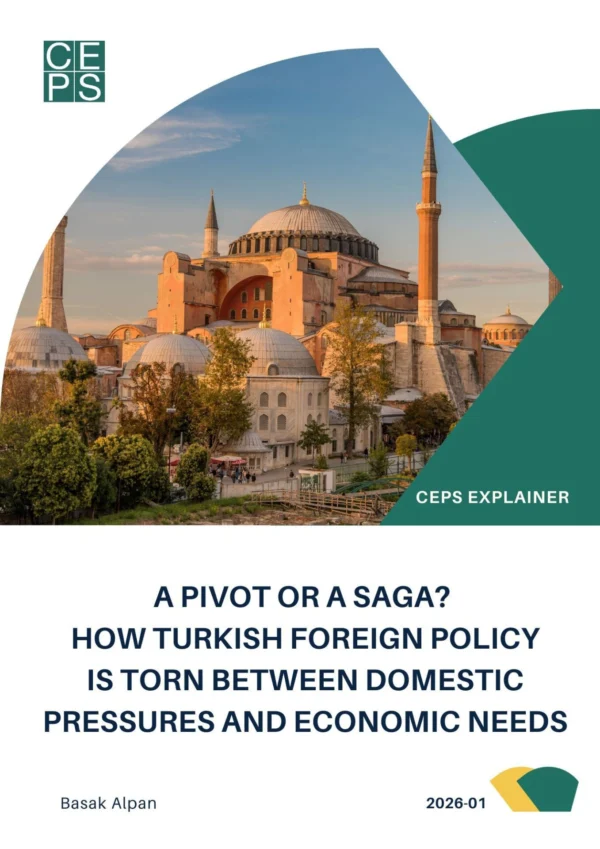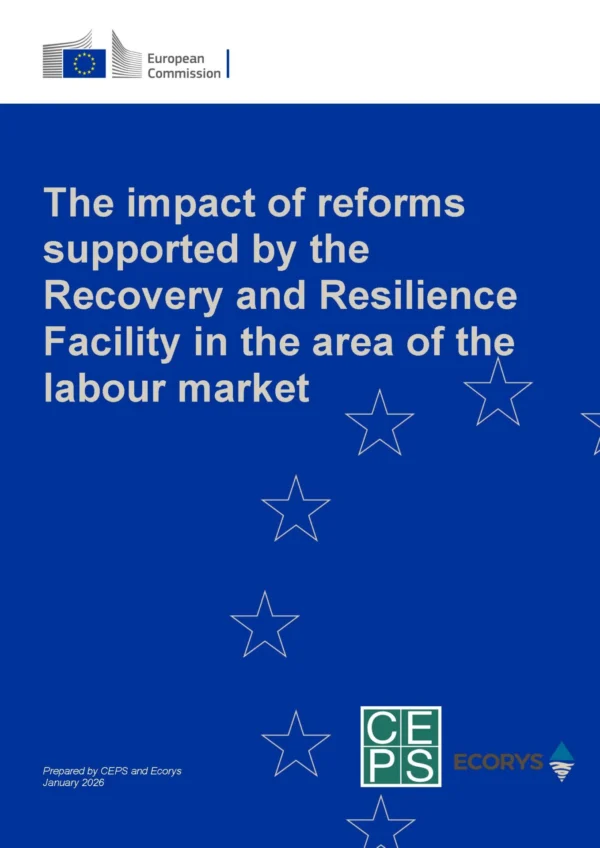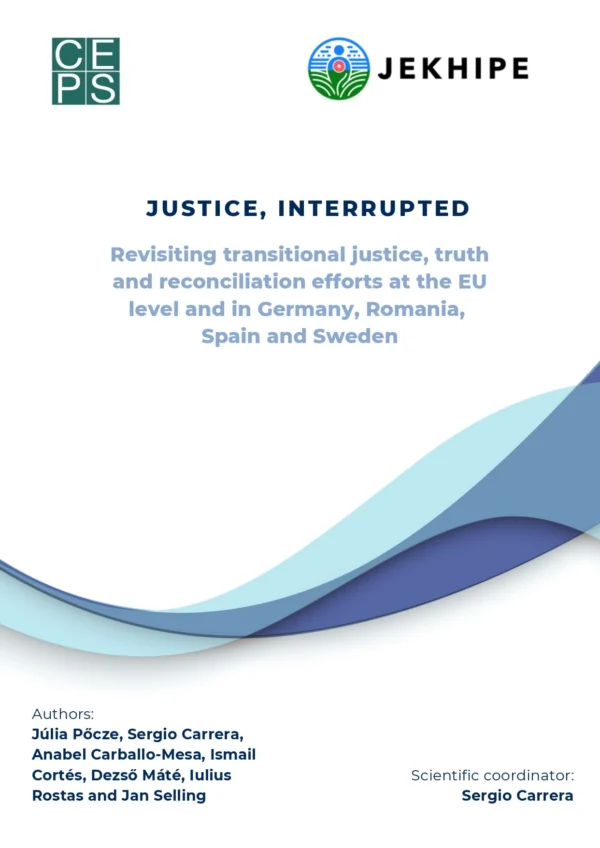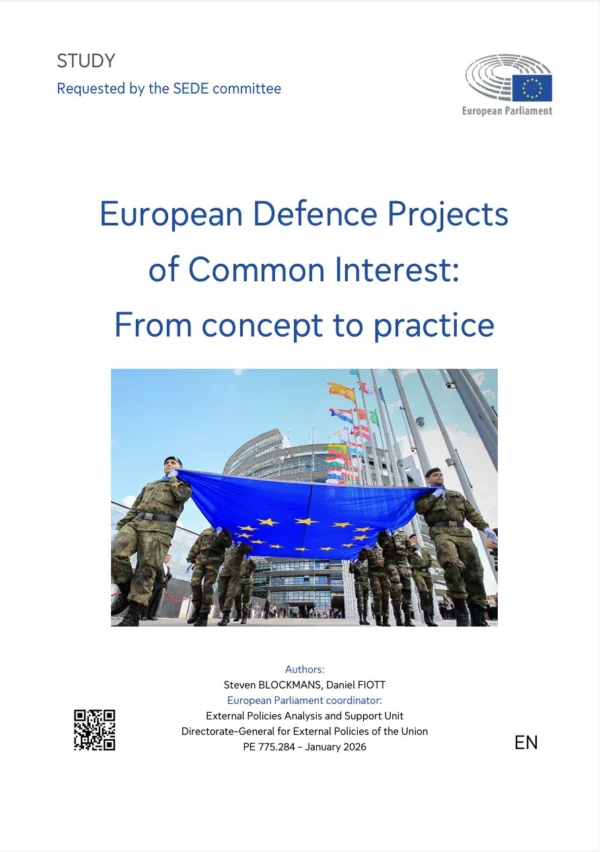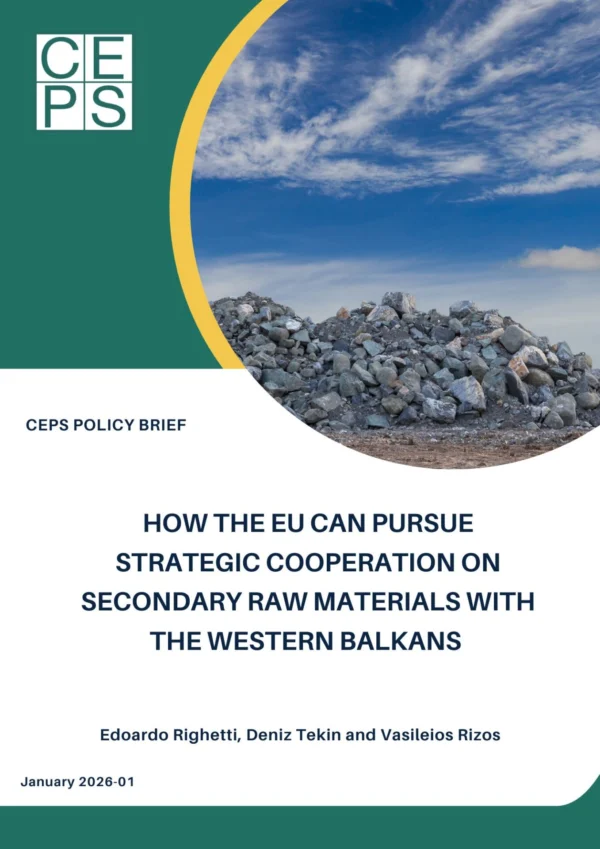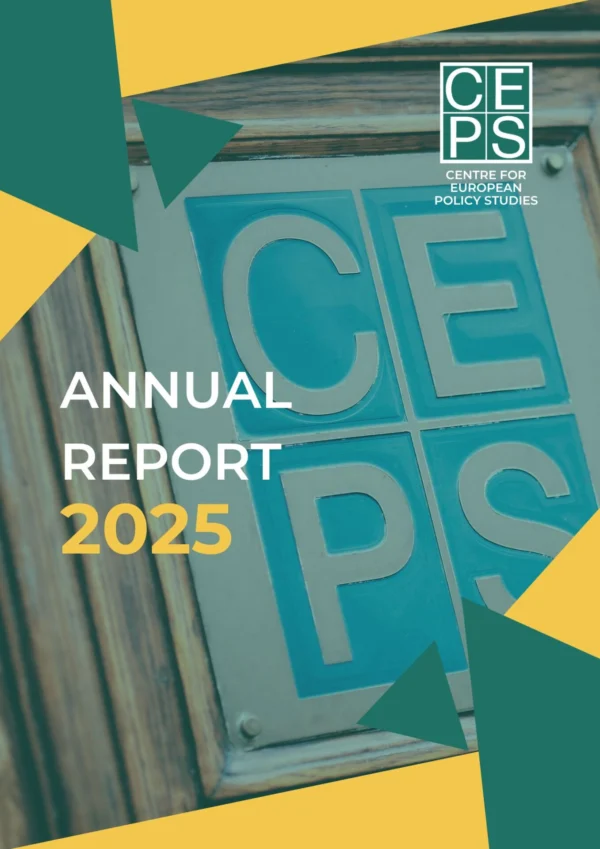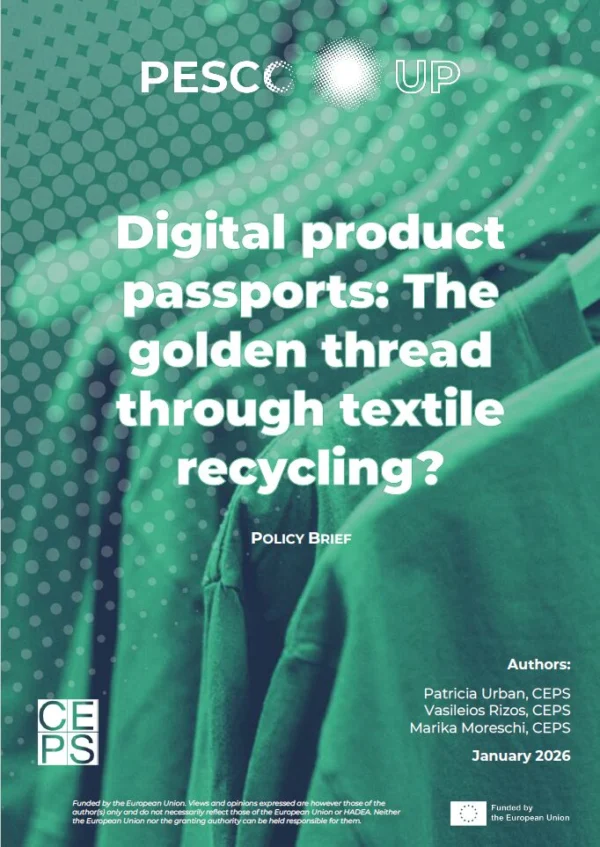
Authors: Vilde Renman and Sophia Russack
Series: EPIN Commentary No. 30 No of pp: 3
The Grand Duchy of Luxembourg held the reins of the EU Council presidency between 1 July and 31 December 2015. This was the 12th time that the second-smallest and the richest EU member state[1] held the rotating Council presidency. As one of the founding members of the EU, Luxembourg has sound experience to bring to this role. It was, however, its first presidency since the entry into force of the Lisbon Treaty and its introduction of the trio presidency format, this time including Italy and Latvia. Under the slogan ‘A Union for the Citizens’, Luxembourg had the task of concluding certain major dossiers before the end of the trio’s term and was able to contribute to its overarching agenda, especially regarding the priorities of financial stability, growth stimulation and the digital agenda.
Crisis-ridden Europe
It was not the size or the prior experience of the Grand Duchy that marked the overall performance of the presidency, but rather a number of external events that impacted the whole of Europe from a political, economic and social perspective: namely the huge inflow of migrants to Europe and the terrorist attacks in Paris. Against the backdrop of these events, Luxembourg’s presidency faced the huge challenge of taking clear action beyond the predefined set of priorities. Migration had already been identified as one of these priorities, but the urgency of this matter was dramatically stepped up in the course of the presidency. This included, first, the organisation of extraordinary meetings of the Council and second, the adoption of a set of ad hoc crisis management measures. A difficult one was the decision to relocate up to 160,000 migrants across Europe to unburden the most affected member states – a decision that revealed rifts between member states as the matter had to be concluded by qualified majority voting[2] in the Justice and Home Affairs Council on September 22, following strong negotiation pressure from Germany, in particular, and considerable mediation efforts by the Luxembourg presidency. Another measure was the increase in workforce for Frontex, EASO (European Asylum Support Office) and Europol − the most frontline agencies. In order to fund these measures, aid totalling €455.7 million from the 2015 EU budget was allocated.[3]
The Paris attacks in November 2015 moved the fight against terrorism to the top of the agenda and accelerated progress on the European Passenger Name Record (PNR), thereby making this one of Luxembourg’s major achievements. The proposal, which was initiated by the Commission back in 2011, allows storage and usage of air passenger data in order to detect and/or prosecute terrorists. The initiative sparked heated debate for over three years within the European institutions and was blocked by the European Parliament due to privacy rights and data protection concerns. The Paris attacks injected fresh impetus into the debate and once the EP had been reassured that the law would take account of the principle of proportionality and would include certain safeguards on personal data protection, MEPs dropped their longstanding objections.
Flagship files
Although these events and the required response to them eclipsed the planned agenda of the Luxembourg presidency, remarkable progress was still achieved on certain dossiers.
With regard to the presidency’s commitment to strengthening the digital aspects of the single market, success came on December 15th when agreement was reached in an informal trilogue negotiation process on the Data Protection Package. This dossier aims to give more control to citizens and consumers over their personal data and has been under discussion since early 2012. The Luxembourg presidency had to undergo equally hard, if not harder, negotiations than the Latvians on this file in order to overcome political disagreement among member states[4] and to push for its finalisation in December. Consequently, both Commission President Juncker and Council President Tusk highlighted this particular agreement as a great achievement.
During the Council meeting of December 15th, the proposal for an Interinstitutional Agreement (IIA) on Better Law-making was approved.[5] Described as a political agreement to ensure that EU law-making takes greater account of citizens and businesses, especially SMEs, it follows the lines of the Commission’s ‘Better Regulation Package’ in working towards the simplification of EU legislation. Moreover, it opens a door to greater cooperation between the institutions, notably by stipulating that all three institutions work together in drawing up joint legislative priorities on an annual basis. It asks the Commission to consult both the Council and European Parliament before adopting new annual work programmes, which might result in more coherent long-term cross-institutional legislative planning. The agreement is now awaiting signature from the presidents of the three EU institutions before officially entering into force.
In the same vein, the Luxembourg presidency also made non-legislative institutional advancements in terms of the working methods of the Council. More precisely, they introduced the so-called ‘Competitiveness Check-up’ to create a better framework, especially for SMEs,[6] and to integrate competitiveness more into other policy areas.
With regards to the priority to place European competitiveness in a global and transparent framework, the Luxembourg presidency pushed for political agreement in October on a proposed Directive on cross-border tax rulings, which introduces the mechanism of an automatic exchange of information on tax rulings between EU member states. There was undoubtedly a sense of urgency for the Luxembourg presidency to follow up and demonstrate willingness to fight tax-avoidance schemes, particularly in light of the ‘Luxleaks’ scandal on tax deals between Luxembourg, other member states and over 350 multinational companies. Particularly delicate in this regard are Juncker’s former positions as Prime Minister and Finance Minister of Luxembourg at the time of negotiations on these deals, which called for an especially appropriate response on the part of the Grand Duchy.
The European Commission’s Action Plan on building a Capital Markets Union (CMU) was further discussed by the Council and a political agreement was reached in the COREPER on a legislative proposal to relaunch simple, transparent and standardised securitisation (’STS’) in the EU, which was brokered by the Luxembourg presidency in record time − only nine weeks.[7] It aims to place private securitisation markets back on a firm and sustainable footing so that they can act as an effective funding channel for the EU economy. In particular, restarting securitisation markets is expected to free up capacity on banks’ balance sheets for granting new loans to SMES.
Overall performance of Luxembourg
It should be noted that crisis topics and highly pressing matters are decided upon in the European Council and are managed by its (permanent)[8] president. Donald Tusk has been in charge of shaping a unified member state response at the highest political level. The Council of the EU follows the strategic direction of its de facto principal. Bearing this hierarchical relationship in mind, Luxembourg proved its ability to manage crises by adopting decisions and implementing measures that were in line with the European Council’s position.
The Luxembourg presidency did set out with an ambitious agenda, but to a certain extent it may have been artificially inflated, because many of the priorities listed did not in fact fall under the scope of the rotating presidency but rather to other institutional actors. In this sense the presidency suggested it could deliver more than it was able to. Due to its commitment to advocate sustainability, the EU participated in important meetings and summits, such as the COP21 in Paris and the United Nations Sustainable Development Summit in New York. The preparation of these events was undertaken by the Council, but the Commission led the negotiations on behalf of the EU.[9] Also regarding EU external action, other institutions were crucial, since all Foreign Affairs Council formations are chaired by the High Representative Federica Mogherini and not by the rotating presidency.[10] For example, the Foreign Affairs Council had a say on migration issues, such as the naval operation EUNAVFOR MED SOPHIA to combat human trafficking and smuggling.
The Luxembourg presidency nevertheless managed to close a number of difficult long-term negotiations on important legislative files, thereby demonstrating their know-how in leading diplomatic discussions.
Performance of the trio
In line with the European Council’s ‘Strategic Agenda’ and the trio’s stated purpose to strengthen the coordination and consistency between presidencies, most of the aforementioned successfully concluded dossiers were built upon the intense negotiation processes of the Latvian and Italian presidencies. The dossiers on migration, taxation, data protection and the inter-institutional agreement were all underway before the summer and only the official conclusions on these dossiers can be credited to Luxembourg. Interestingly, no reference was made by the Grand Duchy to the groundwork laid by their predecessors and the overarching agenda of the trio and their joint achievements.
We can expect that the new Dutch presidency, which has just kicked off the next trio, will continue the strong focus on migration, probably with a tougher approach towards external border control.[11] One more Luxembourg priority will spill over to the next trio: the Dutch will pick up and press ahead with the better regulation agenda in order to improve effective European law-making.
[1] Per capita: http://europa.eu/about-eu/countries/member-countries/luxembourg/index_en.htm
[2] Slovakia, Romania, Hungary and the Czech Republic voted against and Finland abstained.
[3] Preliminary report on the achievements of the Luxembourg Presidency, July – December 2015: www.eu2015lu.eu/en/actualites/communiques/2015/12/18-bilan/BILAN-PRESIDENCE-LU_EN_FINAL.pdf
[4] See: https://euobserver.com/justice/124466.
[5] Based on the Commission’s communication Interinstitutional Agreement on Better Regulation: http://data.consilium.europa.eu/doc/document/ST-9121-2015-INIT/en/pdf, dating from May the same year and efforts made thereafter by the Latvian Presidency.
[6] Outlined by the Luxembourg presidency: better conditions for businesses; on the ETS system; on control of CO2 emissions in the motor industry; on progress in implementing the unitary patent protection system.
[7] www.consilium.europa.eu/en/press/press-releases/2015/12/02-capital-markets-union-securitisation/
[8] The President holds the post for a period of 2 ½ years.
[9] President Jean-Claude Juncker and Commissioner Miguel Arias Cañete (Climate Action & Energy)
[10] Except for the FAC in trade formation, which is chaired by the rotating presidency.
[11] See www.politico.eu/article/5-targets-for-the-dutch-eu-presidency-to-succeed-schengen-uk-better-regulation/
Vilde Renman is Research & Administrative Assistant and Sophia Russack is an intern at CEPS.



